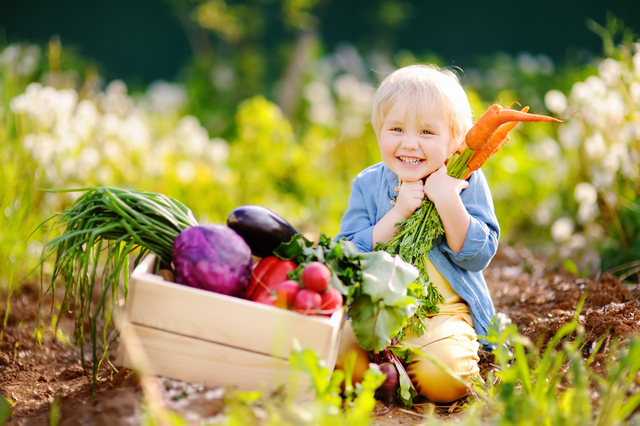Tips For Growing A Successful Organic Garden

If you are feeling like organic gardening is an overwhelming subject, then you are in the right place. When thinking about how to go about growing your garden, just remember that the more knowledge you have, the easier it should go when you're forming strategies and implementing those strategies towards your gardening endeavors.
Pick the right plants. Certain plants will have an easier time germinating than others, and will guarantee a better harvest for the beginning organic gardener. Good choices include hardy varieties of cabbage, cauliflower, and herbs, but of course, you have to choose those plants which are going to do well in your climate.
If you don't have the space to have an actual garden in the ground, it's perfectly acceptable to have an organic garden in containers. There are only a few root vegetables like asparagus that won't grow well in containers, so feel free to explore. Containers are perfect to grow organic tomatoes, green beans, green onions and many other organic vegetables.
Add three inches of mulch to your flower beds. This will discourage weeds from growing, add nutrients, and retain the moisture in your garden. What's more, your garden will look professional all year.
You should organize your garden and plan everything. Do not buy seeds if you do not know where you will plant them. You need to plan on the long term for certain plants, and on the very short term for short-lived plants that will need to be replaced very quickly.
Use plants that work together. Some plants take nutrients away from the soil while others fixate those same-lost nutrients. Traditionally, vegetables are planted with a crop rotation because of the ability of certain crops to replenish the natural nitrogen in the ground. However, you may be able to take advantage of this knowledge by pairing up "companion plants".
Use compost to improve the quality of your soil. Compost comes from the breakdown of natural vegetation, and it is organic. It improves the structure of your soil by making it less dense, thus allowing better water permeability. Compost can also be used to balance the pH level of your soil.
The best time to water your organic garden is early in the morning. By watering at the start of the day, you are allowing any moisture that accumulates on the leaves to dissipate. This helps to discourage the growth of any mildew or fungus on the leaves that cold air and water would combine to create.
Here is a tip for organic gardening! Use a rain gauge. Most plants require about an inch of water per week. To know how much you need to water, it is important to know how much water the plants received from rain. As rainfall can vary greatly within a city, don't depend on your weather report; instead use a rain gauge to determine the amount that fell at your location.
In your organic garden, try using floating row covers to prevent moths from laying eggs on your plants. Floating row covers, which are made from lightweight material that has been specially designed to allow light and water to penetrate it, can be used as an effective cover for your plants to stop moths from laying eggs. This helps to protect your plants from caterpillar damage later in the growing season.
To prepare the ground for your organic perennial plants, simply cut the turf and turn it over a few weeks before planting time. Spread wood chips a few inches deep on the freshly-turned soil, and within a couple of weeks the ground will be ideal for your organic perennials. These hardy plants need only a little bit of preparation.
Keep plastic grocery bags convenient to the nearest door to your garden. Working in your organic garden can be greatly enjoyable, but also messy. You can re-use plastic bags as impromptu shoe-covers so that you can enter your house without tracking in garden mud. This will allow you to deal with any indoor necessities quickly and get back to your gardening faster.
Cover bare spots when you plant. When you put a new plant into your organic garden, do not leave the earth bare where you planted. Make sure you mulch the area all around your new plant. This will protect it while it begins to grow. This will also keep the ground moist.
Make sure that your soil is not deficient in minerals. Ideally, your soil should have a blend of fourteen basic mineral elements that come from the rocks in your region. When one of these minerals is missing, your plant growth will be adversely affected. When you see a deficiency, add organic mineral amendments to your soil.
A great tip that can help you with organic gardening is to make sure you have the right soil. In order for your plants to get the proper nutrients, the soil needs to have a pH of about 6.5. If the soil is much higher or lower your plants won't grow.
With all of the knowledge you just learned about gardening, you want to start forming plans and implementing those plans to the best of your ability. When it comes to gardening, you have to go outside and get yourself dirty, while you try out the strategies you have formed, when you do that you're going to see what does and doesn't work and from there, you can form new strategies.
Congratulations @rifatkhanweb! You received a personal award!
Click here to view your Board
Congratulations @rifatkhanweb! You received a personal award!
You can view your badges on your Steem Board and compare to others on the Steem Ranking
Vote for @Steemitboard as a witness to get one more award and increased upvotes!